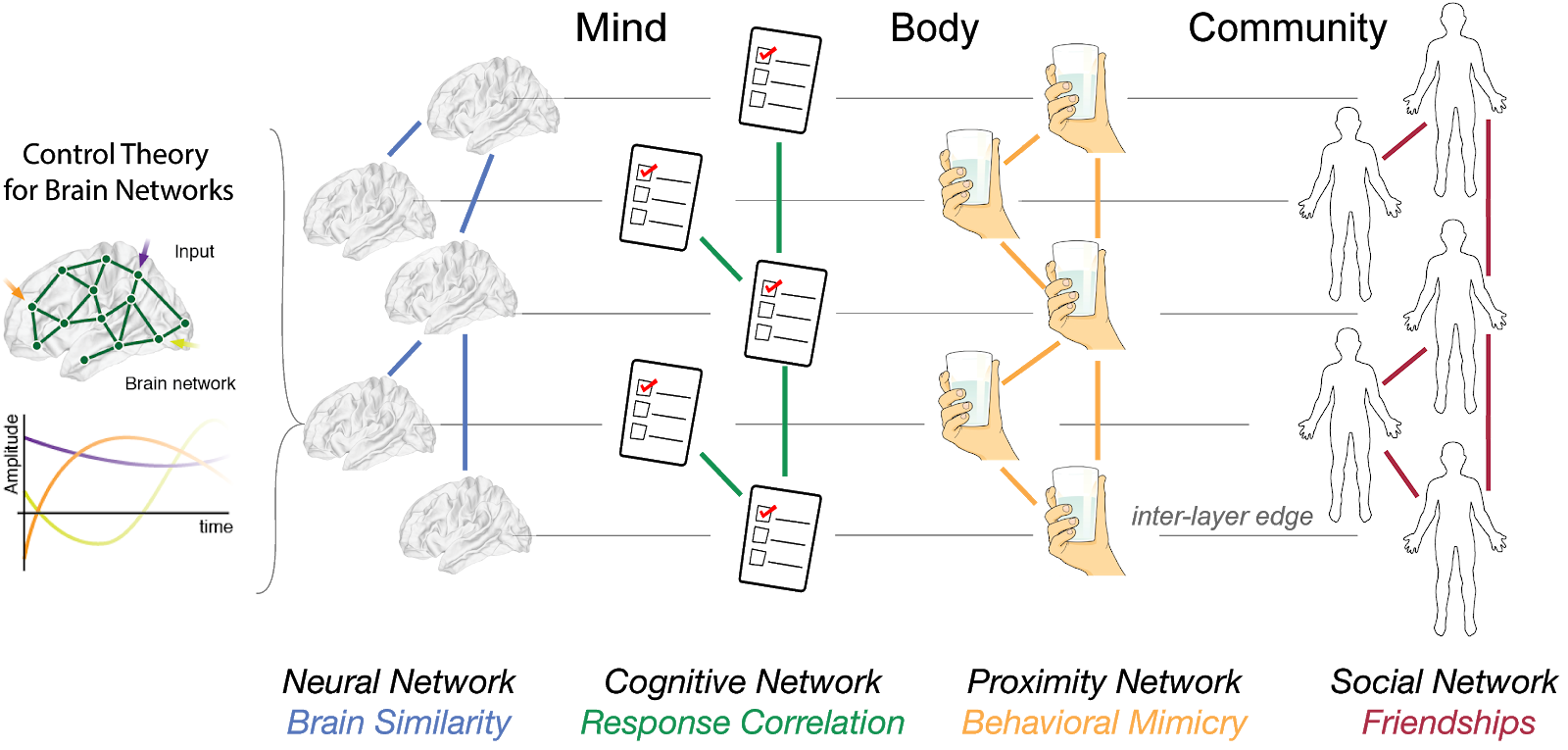Coevolution of Neural, Cognitive, & Social Networks:
Mind-Body-Community Connections
Background
People are not passive receivers of their psychological experiences. Rather, in some cases, we can deliberately modify or construct the way we respond to stimuli in the world. A large body of research has focused on effects of cognitive regulation on emotional responding, revealing that this process relies on interactions between prefrontal brain systems involved in controlled processing and subcortical brain systems involved in the generation of emotion [1-2]. In a separate body of research, we have shown that spontaneous variation in brain activity associated with self-relevance processing (e.g., ventromedial prefrontal cortex) can predict receptivity to health communications [3-5]. In the proposed work, we will examine psychological and brain responses to health-related visual cues.
1. Ochsner, K. N., Silvers, J. A., & Buhle, J. T. (2012). Functional imaging studies of emotion regulation: A synthetic review and evolving model of the cognitive control of emotion. Annals of the New York Academy of Sciences, 1251, E1-E24. https://doi.org/10.1111/j.1749-6632.2012.06751.x
2. Buhle, J. T., Silvers, J. A., Wager, T. D., Lopez, R., Onyemekwu, C., Kober, H., Weber, J., & Ochsner, K. N. (2014). Cognitive reappraisal of emotion: A meta-analysis of human neuroimaging studies. Cerebral Cortex, 24, 2981-2990. https://doi.org/10.1093/cercor/bht154
3. Falk, E.B., Berkman, E., Mann, T. Harrison, B., & Lieberman, M.D. (2010). Predicting persuasion-induced behavior change from the brain. Journal of Neuroscience, 30(25), 8421-8424. https://doi.org/10.1523/JNEUROSCI.0063-10.2010
4. Berkman, E.T. & Falk, E.B. (2013). Beyond brain mapping: Using neural measures to predict real-world outcomes. Current Directions in Psychological Science, 22(1), 45-50. https://dx.doi.org/10.1177%2F0963721412469394
5. Falk, E.B., ODonnell, M.B., Cascio, C.N., Tinney, F., Kang, Y., Lieberman, M.D., Taylor, S.E., An, L., Resnicow, K., & Strecher, V.J. (2015). Self-affirmation alters the brains response to health messages and subsequent behavior change. Proceedings of the National Academy of Sciences, 30(25), 8421-8424. https://doi.org/10.1073/pnas.1500247112.
6. Falk, E. B. & Bassett, D. S. (2017). Brain and social networks: fundamental building blocks of human experience. Trends in Cognitive Sciences, 21 (9), 674-690. https://doi.org/10.1016/j.tics.2017.06.009.
Primary Objectives
We aim to study the effects of cognitive regulation strategies on responses to health-related cues while relating these effects to social network variables, and to downstream health-relevant attitudes and behaviors. The main objective of the project is to identify brain systems underlying 1) responding naturally to health-related visual stimuli, and 2) deliberately changing ones responses to health-related visual stimuli via cognitive strategies (mindfulness, perspective-taking, and focused attention). As a secondary objective, this project aims to relate brain activity to individual differences in psychological processes, as well as changes in group behaviors, measured in the online survey and reported in the longitudinal follow-up.
Plan
We will survey 800 individuals (400 at the University of Pennsylvania and 400 at Columbia University) at three time points, and a subset of these participants (120 at Penn and 120 at Columbia) will also undergo fMRI scanning and complete daily surveys for one month. We will compare the effects of different cognitive regulation strategies on affective, physiologic (pupil dilation), and brain responses to the visual cues. We will also examine self-reports of health-related attitudes and behaviors in the month following the scan. Further, because psychological and brain processes can be influenced by the social environment, we will combine these intra-individual measurements with extra-individual measurements of social network processes within mathematical models.Integrated Multilayer Model
